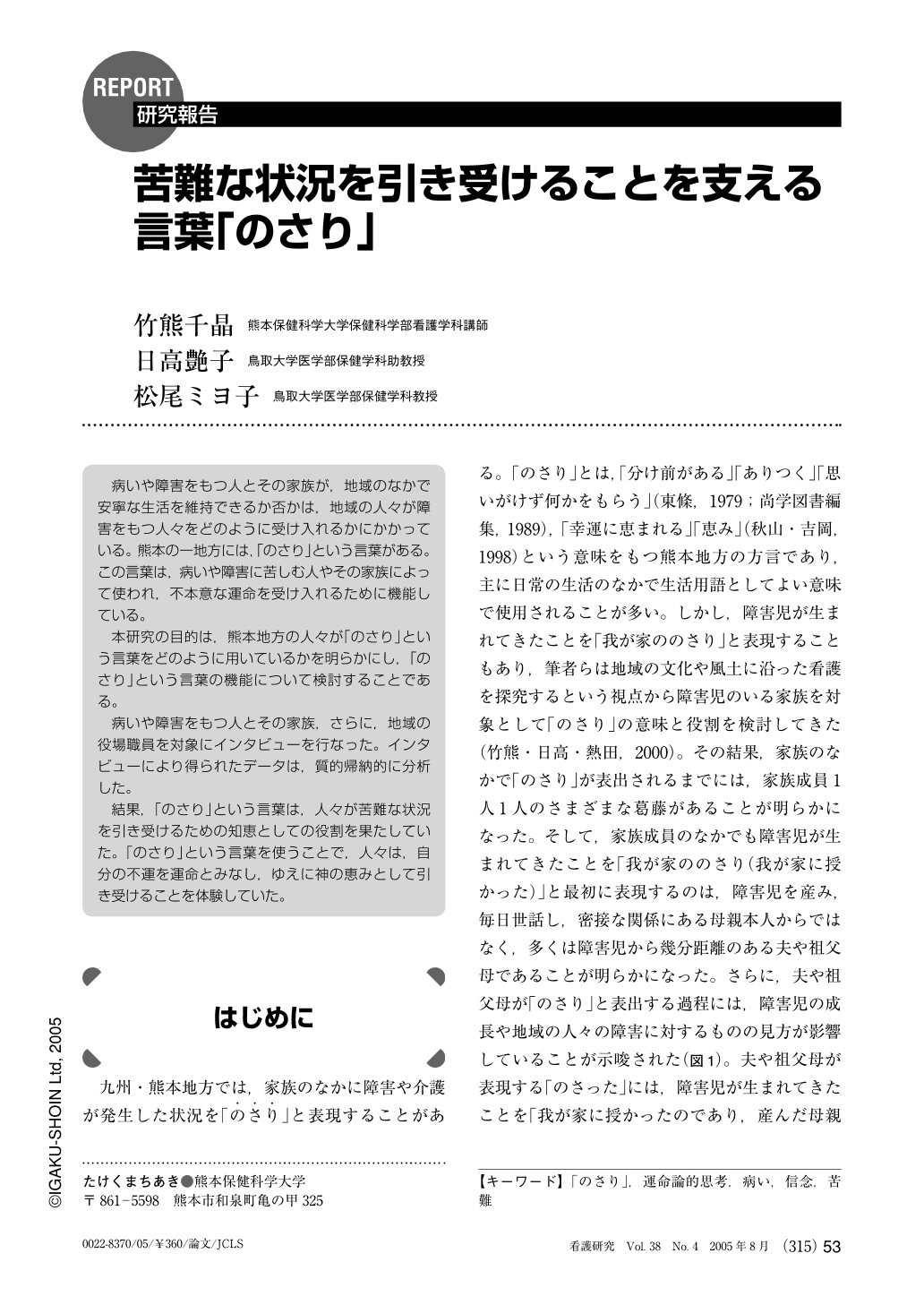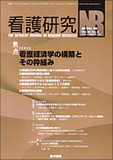Japanese
English
- 有料閲覧
- Abstract 文献概要
- 1ページ目 Look Inside
病いや障害をもつ人とその家族が,地域のなかで安寧な生活を維持できるか否かは,地域の人々が障害をもつ人々をどのように受け入れるかにかかっている。熊本の一地方には,「のさり」という言葉がある。この言葉は,病いや障害に苦しむ人やその家族によって使われ,不本意な運命を受け入れるために機能している。
本研究の目的は,熊本地方の人々が「のさり」という言葉をどのように用いているかを明らかにし,「のさり」という言葉の機能について検討することである。
病いや障害をもつ人とその家族,さらに,地域の役場職員を対象にインタビューを行なった。インタビューにより得られたデータは,質的帰納的に分析した。
結果,「のさり」という言葉は,人々が苦難な状況を引き受けるための知恵としての役割を果たしていた。「のさり」という言葉を使うことで,人々は,自分の不運を運命とみなし,ゆえに神の恵みとして引き受けることを体験していた。
Whether people with a chronic illness or physically/psychosocially challenged condition and their family maintain their well-being in a community depend on how the other people of the community accept those people. In one area of Kumamoto, Japan, the word of “Nosari”, which is the dialect of this area and means a gift from gods or providence, has been used by the people suffering from a chronic illness or physically/psychosocially challenged condition and their family to accept their unsatisfied life. The purpose of the study was to clarify how these people of the area of Kumamoto used the word of “Nosari” and to discuss the function of “Nosari”. Interviews were conducted for 1) people who survived with a chronic illness or physically/psychosocially challenged condition and their family caregivers and 2) people who worked in the municipal office of the area. Interview data were analyzed by a qualitative approach. As a result, the word of “Nosari” was found to be used as a wisdom to compromise with their unsatisfied situation. By using “Nosari”, people could persuade themselves that their bad luck was their destiny, therefore, should be accepted as a gift from gods. Moreover, the meaning of “Nosari” and its way to be used have been changed as people grow. This means that since their childhood the people of this area gradually have been learning how to use the word of “Nosari” and preparing for unavoidable events which might happen in their future. In conclusion, “Nosari” was a traditional concept of Kumamoto, Japan and functioned to accept the unsatisfied life of people with a chronic illness or a physically/psychosocially challenged condition and their family.

Copyright © 2005, Igaku-Shoin Ltd. All rights reserved.


